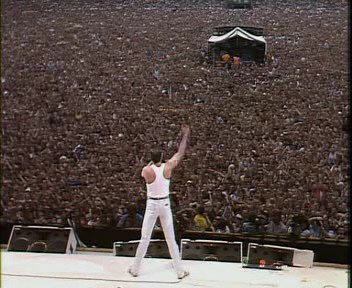Aid campaigns: good for us, bad for them?
 I've been reading and enjoying Amartya Sen's book, The Idea of Justice, and getting into his theory of capabilities and freedoms. He's an interesting writer, although as a book it doesn't blow you away as, say, MacIntyre's After Virtue does. This may be because the book is really a collection of thoughts and ideas Sen has expressed over the last 20 years, so there isn't that sense of 'wow, this is a bit radical'. His thinking is already quite mainstream, and he's very much an establishment insider - he must thank every single senior philosopher in American academia in his acknowledgements.
I've been reading and enjoying Amartya Sen's book, The Idea of Justice, and getting into his theory of capabilities and freedoms. He's an interesting writer, although as a book it doesn't blow you away as, say, MacIntyre's After Virtue does. This may be because the book is really a collection of thoughts and ideas Sen has expressed over the last 20 years, so there isn't that sense of 'wow, this is a bit radical'. His thinking is already quite mainstream, and he's very much an establishment insider - he must thank every single senior philosopher in American academia in his acknowledgements.
Anyway, I think his most interesting point is that governments should promote the capabilities or freedoms of their citizens, rather than focusing purely on their material circumstances, or their happiness. He shows that there's a more sophisticated third option between 'happiness' and 'GDP'. I saw happiness economist Andrew Oswald of Warwick University speak last week, and he showed a slide with a pound sign on the left and a big smiley face on the right - the implication was its happiness or bust. I immediately felt: neither! Both solutions are too simplistic. Both try to shoe-horn humans in all their complexity into too simple and monist a theoretical system. Both are reductionist and diminishing.
Focusing on the capabilities and freedom approach, by contrast, gives space for humans' own agency in deciding the good life for themselves. It does not insist that people follow a particular version of the good life, which is what so many happiness experts do ('To really be happy, you must be my sort of happy, OK?'). It recognizes that there are several intelligent responses to the question of how to live, and seeks to defend people's opportunity to follow those different paths.
It also recognizes that agency is not the same as individual well-being. You may choose, for example, to follow a path that is high in agency and moral choice, while actually being damaging to your own individual well-being - because you think it is your moral duty to follow that path. Sen gives the example of Gandhi, whose work for Indian emancipation was good for his country's well-being, and good for his own moral agency, while damaging his individual well-being. Likewise, soldiers who choose to fight for their country are arguably choosing a path that is high in moral agency, while potentially damaging to their individual well-being.
The capabilities approach sees people not simply as bellies to fill, nor as needs to be gratified, nor as happiness machines. Rather, it sees them as agents capable of choice and reasoning.
This made me think of the aid campaigns which western countries have frequently conducted to 'save' Africa. How would you view such campaigns from a capabilities perspective. It seems to me you could view campaigns like Live Aid or Make Poverty History as celebrations of western agency at the expense of the agency of the aid recipients. In particular, they are celebrations of the super-agency of the celebrity. Imagine the gratification a celebrity would feel, standing on the stage of Live Aid or Make Poverty History, feeling that they are saving the world. The people being helped, meanwhile, are at the sidelines, silent, grateful, passive.
This is obviously a cynical perspective, and I don't mean to question the good intentions of the people involved. Nonetheless, such festivals are a celebration of our power and agency, and an affirmation of their helplessness and lack of agency. Look for example at the 1986 American aid song, We Are The World:
We are the ones who make a brighter day
So let's start giving
There's a choice we're making
We're saving our own lives
It's true we'll make a better day
Just you and me
Send them your heart
So they'll know that someone cares
And their lives will be stronger and free
As God has shown us by turning stone to bread
So we all must lend a helping hand
Who is the 'you and me' here? It is the west. In particular, it is western celebrities. 'Them' are the helpless others.
Listen to Bob Geldof's words in the clip below: he speaks of the 'long, long walk to justice' - but who made that walk? The Ethiopians? African countries? He says 'we decided to do something about it' - but who's we? He means ' me and my celebrity mates decided to put on a concert'. Great stuff, but it didn't save Ethiopia from poverty. He says: 'Because we did a concert, because we did that, we saved this girl'. And when she dutifully appears, and smiles, what can she say, apart from 'thank you'? Imagine a world where she did not have to thank her white saviours.
Live8 the girl, Birhan Woldu by popbitch
The third world were objects of exploitation, then they became objects of generosity. They remained objects for our own fantasies of power. All reminds me a little bit of Russell Brand's parody, African Child.
